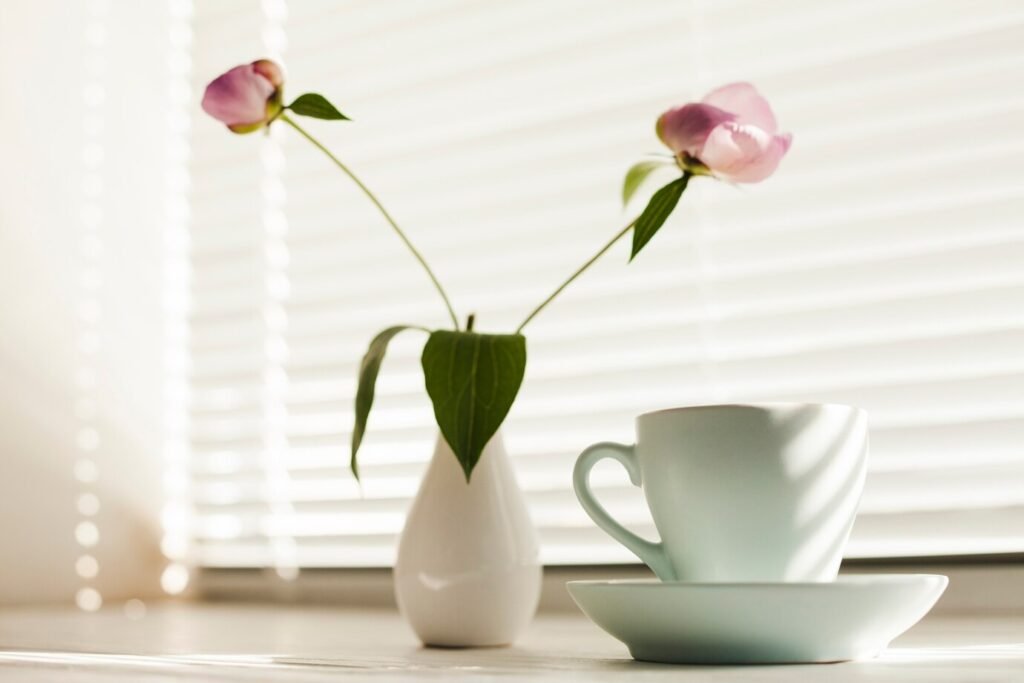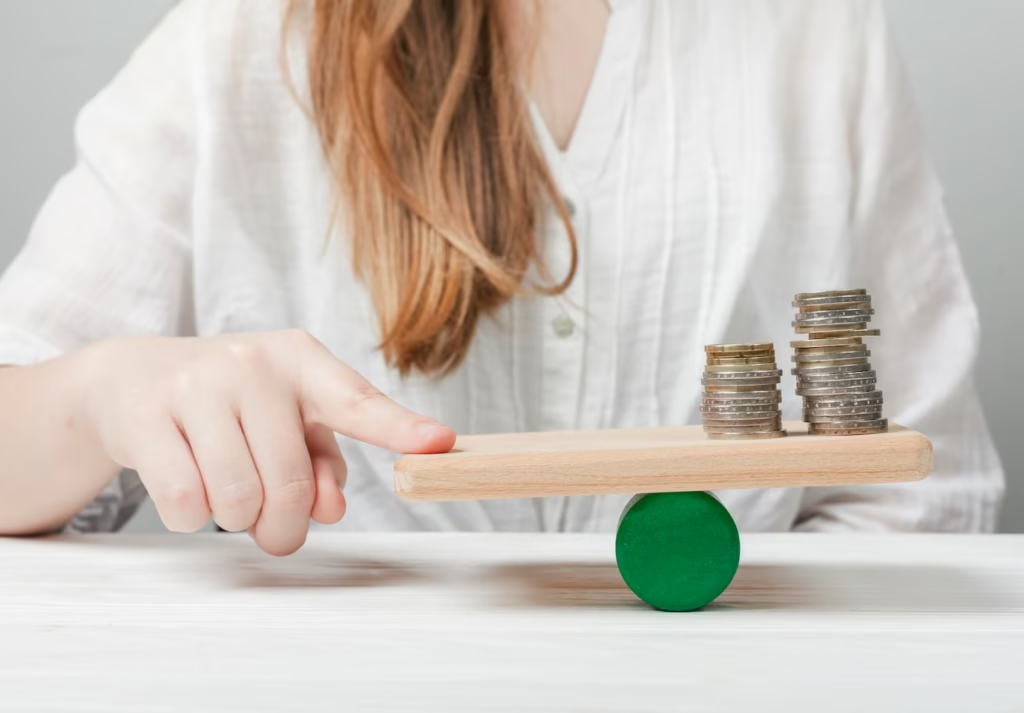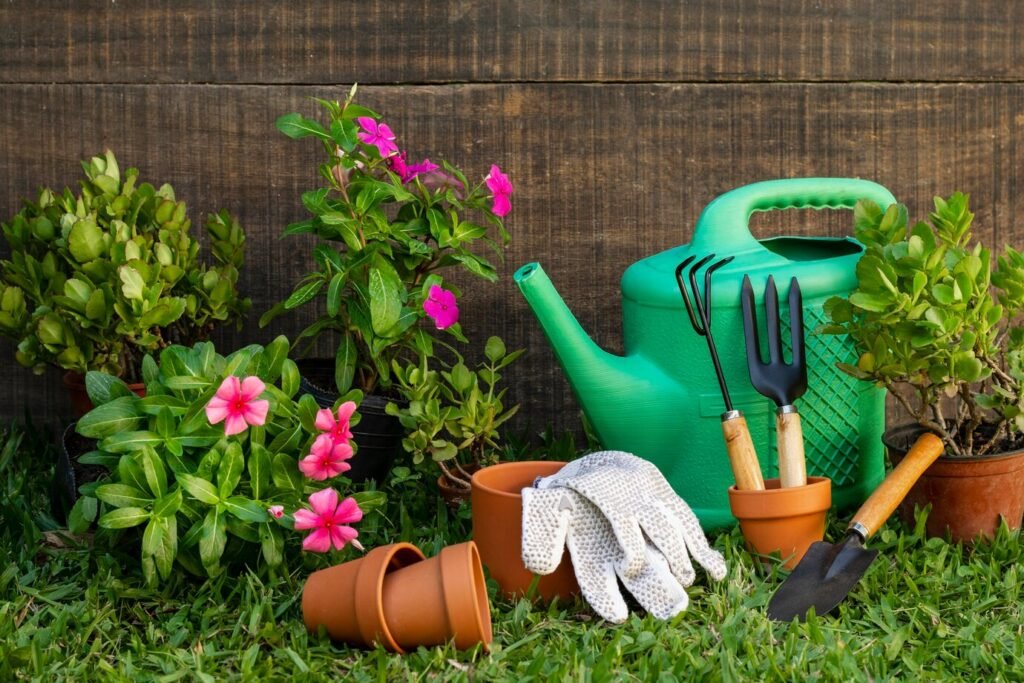
In a time when everyone races after bigger and faster achievements, a simple life remains a distant memory from an earlier period before our society became consumed by modern demands.
Amidst our pursuit of digital affirmation, a new revolution emerges as people find their way back to the profound power that brings lasting happiness through simple living.
Being intentional while being clear about priorities leads us toward meaningful existence, which exceeds deprivation or difficulty because it focuses on essential aspects in life.
Purging all superfluous elements creates space for enduring happiness, which should become a permanent part of every day.
A realistic path to enduring happiness exists through concepts that both ancient wisdom and modern research can verify.
This piece explores both the definition of simple living and demonstrates practical methods to build it within your life for experiencing daily happiness that natural simplicity brings.
We will deepen our understanding through the study of core simplicity principles while providing practical guidance along with insights into why fewer choices lead us to gain substantial rewards.
The Meaning of Simple Life Evolves in Modern Times
Our exploration begins with clear recognition of what simple living means within our modern, complex, networked society.
Moving into a simple life does not require abandoning civilization or hermitage retreats.
People who follow the philosophy of simple living can develop a changing mindset that chooses spiritual peace, meaningful relationships, and sensory pleasures over material things and social expectations.
People who practice simple living make purposeful choices to minimize what is not relevant so the key elements become more prominent.
Simple living is not:
• Poverty or deprivation:
Denying basic necessities or facing hardships is not the aim of this practice.
You need to separate wants from needs before selecting items that exist within budget parameters while maintaining low levels of extra possessions.
• Anti-technology or anti-progress:
Technology needs application through mindful interaction so people can avoid losing themselves to its grip.
Progress becomes a useful tool for adding value to life while avoiding unnecessary complications.
• A universally applicable solution
Simplicity looks different for everyone. A personal discovery path guides individuals toward values-based choices within their life conditions and future goals.
Individuals who live in urban areas as singles will experience a vastly different form of leading a simple existence compared to families living in rural parts of the country.
• A destination to reach:
The quest for simplification unfolds over time as people constantly improve their life choices while refining their essential priorities.
This process requires us to commit to the ongoing journey of making our lives simpler instead of focusing on achieving permanent perfection.
Simple living is
• Intentionality:
You make all your choices regarding consumption and time allocation by actively applying awareness to your personal values.
• Mindfulness:
Presence in every moment enables you to embrace small joys and develop appreciation for your current possessions.
• Contentment:
Contentment stems from enjoying your current possessions while preventing yourself from endlessly chasing additional possessions.
Your life will transform once you learn to redirect your awareness from lacking things toward appreciating all your abundant possessions.
• Clarity:
Your life simplification efforts bring increased mental clarity, lessen daily stress, and create space that enables better thinking and more actionable approaches.
• Freedom:
Living debt-free alongside repudiating societal pressures offers you the freedom to find yourself so you can commit to your authentic path.
• Sustainability:
Due to its environmental orientation, simple living leads people to choose actions that support both the Earth and foster life approaches that prioritize sustainability.
This explanation shows how basic living produces contentment through established mental and psychological bonds.
Human psychology, together with essential life requirements, forms the anchor for the natural bond that exists between simplicity and overall happiness.
Modern society delivers continuous messaging that equates happiness to external validation and material accumulation.
Through advertising methods, businesses exploit human uncertainties to sell new products along with fashionable apparel and high-end vacations.
People who relentlessly pursue external symbols of success end up in a continuous state of dissatisfied longing known as the hedonic treadmill until their next pursuit surfaces.
Easy living creates a permanent escape from nonstop consumption. Through this practice, we turn our attention toward essential happiness sources that produce enduring satisfaction.
People who adopt simple living approaches achieve daily happiness through the following process:
• Reduced Stress and Anxiety:
Both physical and mental clutter serve as primary sources of stress.
The reduction of commitments in daily life, together with less clutter and decreased financial burden, automatically leads people toward lower stress levels.
Peace of mind and emotional stability grow stronger when people manage fewer possessions, owe less debt, and waste fewer hours tracking trending consumer goods.
• Increased Time and Freedom:
Your treasure becomes time, which becomes available to you by not constantly pursuing or taking care of possessions.
A life focused on simplicity allows people to dedicate their time toward meaningful experiences such as profound family bonds or recreational activities, artistic enrichment, and natural bonding or reflecting quietly.
People experience powerful happiness levels whenever they gain control over their time along with freedom from everyday responsibilities.
• Enhanced Gratitude and Appreciation:
On purpose, selecting fewer possessions leads to a new appreciation for the things you already own.
Basic delights become meaningful sources of extreme satisfaction as you enjoy them, such as a delightful morning beverage, a lovely sunset, or an emotional discussion.
The antidote to negativity that builds lasting happiness emerges naturally from simple living because gratitude serves as a neurochemical foundation.
• Deeper Connections and Relationships:
Simple living puts connection with others and community ahead of personal accomplishments and material possessions, which many people pursue in our present-day society.
Moved away from acquiring possessions, we establish relationships that foster emotional growth and create supportive social networks.
Human wellness depends on authentic connections, which lead to substantial contributions to lasting happiness.
• Greater Clarity and Purpose:
Clearing physical and mental clutter makes your life clearer, as it allows you to discover your true self.
Through simple living, you develop self-reflection, which helps you discover fundamental values so you can define actions that serve your actual life purpose.
Lifespan fulfillment plus happiness stems from living in purpose and meaning.
• Improved Physical and Mental Health:
The benefits of simple living for physical and mental health emerge from minimized stress and enhanced self-care opportunities, along with healthier decisions people make about their lifestyle.
The combination of additional exercise time, better food choices, and reduced exposure to consumerism results in improved physical health.
After stress reduction and gaining better control, people experience enhanced emotional resilience, which leads to improved mental well-being.
• Environmental Consciousness and Contribution:
A large number of people seek simple living as a way to minimize their environmental impact while embracing sustainability.
Going through life with purpose becomes attainable when you practice sustainable consumption combined with waste reduction and environmentally friendly choices, thus leading to increased happiness levels and personal well-being.
The Practical Path to Simplicity: Daily Habits for Lasting Happiness
People seeking simple living must understand that this transition develops through both conscious thinking changes and intentional behavior modifications over time.
Daily active choices lead individuals toward happier lives that combine simplicity with joy.
Strategies for integrating simple living principles into your daily practice will help you become fulfilled each day through the following approach:
1. Declutter Your Physical Space (and Your Digital One)

• Start Small and Systematically:
You shouldn’t attempt a full-blown house decluttering in a single session.
Focus on one specific area at a time, whether it is drawers or shelves or categories like clothing or books.
Establish goals that are reachable and celebrate each improvement you reach.
• Ask Yourself Key Questions:
Please consider assessing all items by asking, “Do I use this frequently?”
Do I love it? Does it hold any meaningful use in the way I live my life? If not, can I let it go?”
You should face reality by breaking free from emotional bonds to objects that have no practical value in your life.
• One In, One Out Rule:
Remember to remove a comparable object when you introduce any new home addition.
By using this approach, you can avoid excessive accumulation of items.
• Embrace Digital Minimalism:
Reduce your email subscriptions to cut down on superfluous messages and remove unused applications from your device while optimizing your social feeds and establishing clear screen boundary rules.
An uncluttered digital realm cuts down distractions and lowers mental stress levels.
2. Practice Mindful Consumption

• Pause Before Purchasing:
Double-check any purchase by asking if you genuinely require the item rather than simply wanting it.
Will this purchase bring enduring worth to my life, or is it simply a temporary wish?
Take the time to reflect on your decisions before making any purchases because delay will help you avoid impulsive buying.
• Focus on experience over things:
Place your hard-earned money into memories with you and your loved ones rather than in acquiring possessions.
Experiences produce enduring memories that form strong human relationships.
• Buy Quality over Quantity:
Prioritize getting items that last longer instead of buying several inexpensive items that generate more waste and take up space.
• Borrow, Rent, or Share:
You should think about loaning or renting your occasional needs instead of owning items while sharing household resources with people in your social network.
The approach decreases consumption patterns while building stronger relationships between people.
3. Simplify Your Time and Schedule

• Prioritize Ruthlessly:
Decide on fundamental beliefs that matter to you, then select activities that support those values.
Set boundaries by declining opportunities that take away your energy or fail to benefit your personal welfare.
• Schedule Downtime and White Space:
You should allocate time for both scheduled work responsibilities and relaxation along with unstructured leisure activities with the same level of importance.
Make room to let both random happenings and peaceful reflection occur naturally.
• Batch Similar Tasks:
Grouping like tasks together helps increase operational efficiency while minimizing the costs involved with task-switching in the mind.
Choose designated slots throughout your day to respond to email messages together with running necessary tasks and working in focused areas.
• Practice the “One Thing” Principle:
Your objective should be to handle one crucial task until it’s finished instead of working on multiple tasks simultaneously.
Working deeply while paying careful attention results in superior outcomes and also minimizes feelings of stress.
4. Cultivate Meaningful Relationships

• Prioritize Quality over Quantity:
Develop sustained, strong connections with selected individuals instead of having numerous shallow contacts.
• Be Present and Engaged:
Engage fully with those you love during all times of interaction to experience the full quality of the present moment.
Keep all diversions out of sight to focus completely on your loved ones.
• Practice Active Listening and Empathy:
To show genuine understanding of others, you should listen carefully to their points of view and their essential needs before responding through compassionate and empathetic actions.
Strong relationships form when people understand each other while offering continuous support to one another.
• Set Boundaries and Communicate Effectively:
Define clear limits in your friendships while openly expressing your requirements along with your boundaries through respectful communication.
Main characteristics of a healthy relationship include effective, open dialogue through honest communication.
5. Embrace Financial Simplicity

Set a spending plan by tracking your money movements.
Review your financial outflows to find areas where you can cut costs.
Budgeting gives you both financial control and a more profound understanding of your monetary situation.
The path to financial stability emerges when people eliminate debt and spend only within their earned income.
Reduce debt to manage your income stream at or below your earnings. A simple, happy life depends heavily on obtaining financial freedom and security.
• Differentiate Needs from Wants:
You should learn to separate vital requirements from optional desires.
You should make deliberate choices between essential needs and restrain your spontaneous consumption based on desires.
The target should be financial independence, not the accumulation of wealth.
A shift in your financial mindset should move you from acquiring wealth to establishing freedom through independence regarding your finances so you can manage your basic survival needs and follow your life interests without perpetual money-related strain.
6. Embrace time in natural settings together with the present consciousness

• Spend Time Outdoors Regularly:
Devote one daily segment to natural surroundings by visiting public parks for walks, practicing gardening, finding waterfront spaces, or walking through forest trails. Nature is restorative and grounding.
• Practice Mindfulness and Meditation:
Primitive mindfulness techniques such as meditation, deep breathing sessions, or mindful walking belong in your everyday practice.
Striking these practices leads to greater focus on present-time experiences while silencing distracting mental thoughts.
• Engage Your Senses:
Become aware of everything your senses detect through sights, sounds, smells, tastes, and textures present in your environment.
The sense stimulation practice lets you focus on the current moment while making your daily encounters more meaningful.
• Practice Gratitude Daily:
Spend a few brief moments every day to enumerate what you value—no matter how minor or major these things may be.
The practice of gratitude allows you to locate and savor the positive elements of life, which generates a satisfied state of being.
7. Nurture Your Inner Life

• Engage in Activities You Love:
Devote part of your schedule to activities you love and creative activities that excite you and make you happy.
Your spiritual connection with life finds nourishment through these pursuits while fulfilling your desire for inner meaning beyond work demands.
• Prioritize Rest and Self-Care:
Make sure to get enough rest each day while choosing nutritious diet options and doing physical exercise routinely.
The preservation of physical and mental well-being requires essential care of oneself.
• Reflect and Journal Regularly:
Devote yourself to contemplating life and thinking deeply about personal matters.
Journaling serves as an effective instrument that helps us process emotions while clarifying thoughts, alongside helping us get a more profound understanding of ourselves.
• Cultivate Self-Compassion:
Practice kindness along with self-understanding at all times, but especially when facing difficult situations.
Use the same compassion toward yourself that you would show to your nearest friend.
The Journey, Not the Destination: Embracing Ongoing Simplicity
The path toward living simply extends beyond any final attainment since it requires constant mindfulness of choices and sustained evolution.
Every so often, you might experience overwhelming stress from modern life and occasionally feel tempted to drop simple living for old behavior patterns, such as consumer habits and excess activity.
During these periods, the principles of living simply demonstrate their true worth.
Sticking to the process requires both patience and appreciation for tiny achievements.
Your goal should focus on intention rather than achieving flawless results.
You can achieve satisfaction by making purposeful decisions based on your beliefs while placing importance on essential matters and spotting gratification in routine experiences.
These practical methods combined with a simple mindset pave the way for discovering the deep happiness that emerges from daily purposeful living.
Change is approaching through simplicity—is your readiness to accept it so you can experience the inner pleasure of minimalism?